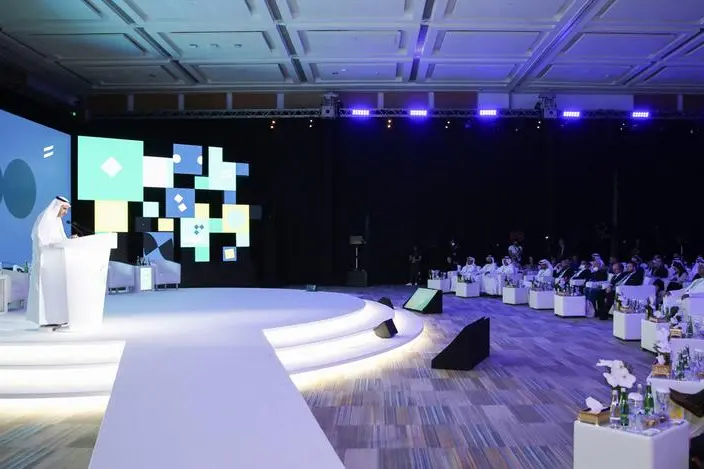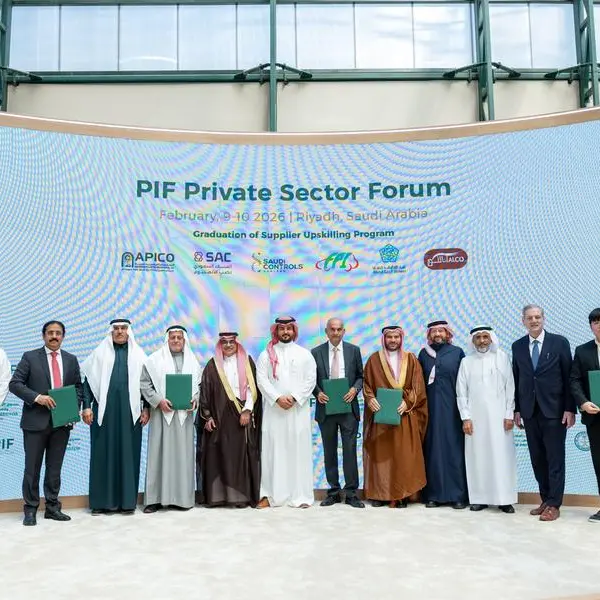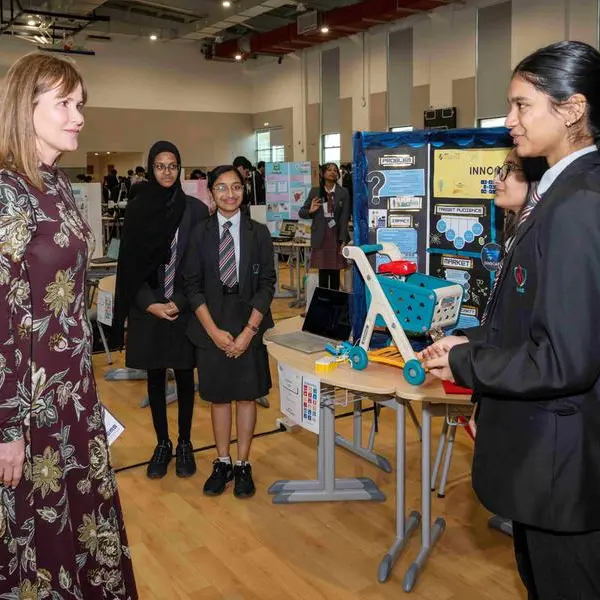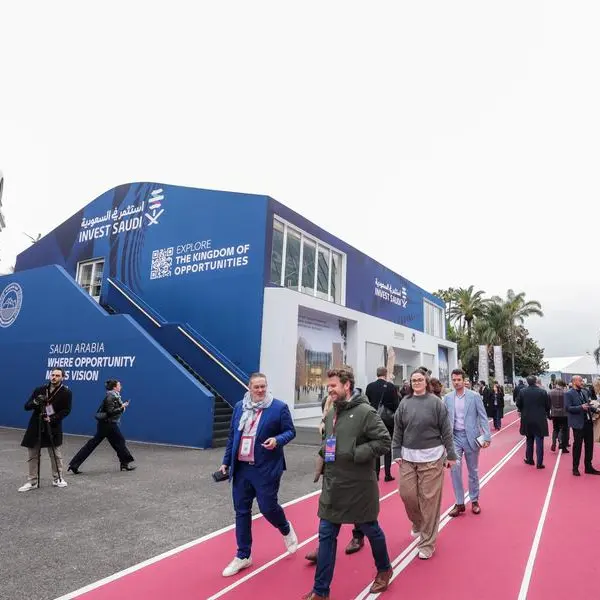PHOTO
Abu Dhabi, UAE – The first edition of the International Congress of Arabic Publishing and Creative Industries was launched today as part of the 31st Abu Dhabi International Book Fair (ADIBF 2022) at the Abu Dhabi National Exhibition Centre (ADNEC).
Organised by the Abu Dhabi Arabic Language Centre (ALC), part of the Department of Culture and Tourism – Abu Dhabi (DCT Abu Dhabi), the Congress highlighted the current trends in the Arabic publishing and content industry, while facilitating dialogue between stakeholders, thought leaders, and entrepreneurs across their various creative platforms. It presented an opportunity to explore the growth and development prospects that different technologies can bring to content creation.
The Congress welcomed Sheikha Bodour Al Qasimi, President of the International Publishers Association (IPA), and His Excellency Dr Ali Bin Tamim, Chairman of the ALC, along with a host of Arab and international officials, publishers, experts and media representatives.
Special guest speaker Sheikha Bodour launched the event with a Keynote Speech, during which she said: “In recent years, the Arab publishing sector has seen a series of internal debates that are establishing a new understanding of the pivotal role publishing plays, and can play, not only in supporting cultural development but also in supporting the comprehensive development of the people of this region.
“This movement is undoubtedly a step in the right direction, but it needs to be built on solid foundations so that we can establish a strong, resilient, and sustainable Arab publishing sector. A key factor to ensure the long-term success of the publishing sector in any region around the world, is the full commitment to respect for copyrights and freedom to publish.”
In his address, HE Bin Tamim said: “The International Congress of Arabic Publishing and Creative Industries is a new chapter in the vision and legacy of the late Sheikh Khalifa bin Zayed Al Nahyan to consolidate Abu Dhabi's position as a global cultural hub. We strongly believe in the importance of publishing and creative industries and the role they play in enhancing the presence of our Arabic language, highlighting its aesthetics and defining features, and underlining the impact it has on introducing our culture and identity to the world.
“The International Congress of Arabic Publishing and Creative Industries brings together the most prominent publishers and experts, marking a significant step towards achieving that vision. Reflecting this commitment, the Emirate of Abu Dhabi is building a sustainable cultural sector by investing AED 30 billion as part of its strategy to support the cultural and creative industry and empower its key players from all over the world.”
In a Keynote Speech titled ‘The 70-20-10 Model for Innovation in Publishing’, Ann Hiatt, the American bestselling author, Silicon Valley veteran and investor, said: “Now is a time of major disruption, there is an incredible opportunity to expand publishing in innovative ways, protecting copyrights and policies. Publishing is extremely important for humanity and we have benefited from it throughout history, in the Middle East today, there are many capabilities and an ambitious reality that heralds the transformation of ideas into knowledge on the ground. We must invest in all available opportunities and create content that features the experiences and knowledge to be shared for the benefit of all people around the world”.
Hiatt pointed out that there is a need for transformation, for reaching ambitious individuals capable of navigating an environment of ambiguity and who have the desire to achieve more success and innovation in various sectors. “The publishing sector should learn from experiences and make decisions that support investment in the future and in the leaders of tomorrow.”
The first Panel Discussion of the event, ‘Arabic Publishing: Where Are We, and Where Are We Heading?’, explored the leading Arabic publishing markets, the most popular genres and their respective market shares, the market share of digital books, and the importance of imports in serving the Arabic market. Moderated by Carlo Carrenho, Publishing Consultant, the session brought together Sherif Bakr, Publisher at Al Arabi Publishing and Distributing; Shereen Kreidieh, General Manager at Asala Publishing House; Stefanie Lamprinidi, Regional Content Expansion Manager of Storytel; and Rüediger Wischenbart, President and Founder of Content and Consulting.
During the discussions, Sherif Bakr said: “Initially, I used to think of the 10 percent as taking risks. However, I later understood that risks could be replaced with welcoming new ideas. I took the risk of introducing new genres, such as comics, in the Egyptian market, and I observed 90 percent success. Despite the large market, we find a lack of effective communication and an inherent need to fix this gap. Many publishers complain about piracy, but we need to realise that piracy didn’t start recently; it has been there long. We can also say that piracy led to the establishment of a digital readership as people agreed to read from screens in order to get to the story. We need to create a system that leads to more profit for publishers as when that happens, more publishers will pop up in the market and reduce the communication gap.”
Shereen Kreidieh said: “In the Arab World, relationships hold high value. For any businessperson, building relationships is vital if they want their business to succeed. The publishing process includes many small and special stories, most of them different from each other. Just like readers have their preferences, so do publishers. The 70-20-10 model might not just be the right one for the Arab World, but it offers a lot of scope for experimentation as the market is bursting with ideas. For example, when we talk about children’s books, publishing before the 2000s used to be largely translation. However, today we observe how numerous authors and illustrators are emerging and sharing manuscripts; it is evident that changes are happening in the industry right around us.”
Stefanie Lamprinidi said: “The Arabic publishing market has a big appeal as we have around 400 million Arabic speakers worldwide. It is the second most widely spoken language in Sweden! When we talk about audiobooks, the first step is educating the public about how they can easily incorporate them into their daily lives. With elements like soundscapes and music, I believe that audiobooks create an enhanced experience of the same stories you enjoy reading from hardcovers. During the pandemic, the demand for children’s audiobooks increased, and we saw a lot of parents using audiobooks as a medium of introducing their children to reading. I do admit that the physical experience of reading a book with your child can’t be replaced, but it is a wonderful tool for hesitant readers and introducing your kids to a whole new world of stories. When we look at the biggest genres, audiobook fans often find themselves hooked on either crime and thriller or romance and feel-good books. In comparison, new audiobook listeners go for personal development and self-help books.”
Rüediger Wischenbart said: “When we look at the Arabic publishing market, we find it fragmented. We need to focus on three areas of concern - fragmentation of information and distribution, reading education, and respecting the authors and their intellectual property. There is a need for an ongoing permanent platform that caters to these three areas of concern, and that is how we will overcome the fragmentation in the market. When we have different countries on board, we can work together to create a permanent structure that must focus on reading education. We must take inspiration from other countries and other models, but when we focus on the Arabic publishing market, we need to create our own model.”
-Ends-
About Abu Dhabi Arabic Language Centre
The Abu Dhabi Arabic Language Centre, established following a directive from His Highness Sheikh Khalifa bin Zayed Al Nahyan, President the United Arab Emirates and Ruler of Abu Dhabi, as part of the Department of Culture and Tourism – Abu Dhabi, works to support Arabic language development and modernisation through comprehensive strategies and frameworks, enrich the scientific, educational, cultural and creative contributions of the Arabic language, promote Arabic language proficiency and cultural understanding, and support Arab talents in the fields of writing, translation, publishing, scientific research, arts, content creation and organisation of book fairs. The Centre works to realise its foundational vision through dedicated programmes, human expertise, and meaningful partnerships with the world’s most prestigious technical, cultural, and academic institutions.
About the Department of Culture and Tourism - Abu Dhabi
The Department of Culture and Tourism – Abu Dhabi (DCT Abu Dhabi) drives the sustainable growth of Abu Dhabi's culture, tourism and creative sectors, fuels economic progress and helps achieve Abu Dhabi's wider global ambitions. By working in partnership with the organisations that define the emirate's position as a leading international destination, DCT Abu Dhabi strives to unite the ecosystem around a shared vision of the emirate's potential, coordinate effort and investment, deliver innovative solutions, and use the best tools, policies, and systems to support the culture and tourism industries.
DCT Abu Dhabi's vision is defined by the emirate's people, heritage, and landscape. We work to enhance Abu Dhabi's status as a place of authenticity, innovation, and unparalleled experiences, represented by its living traditions of hospitality, pioneering initiatives and creative thought.




















